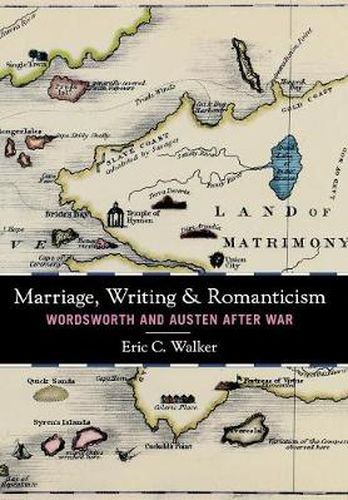Readings Newsletter
Become a Readings Member to make your shopping experience even easier.
Sign in or sign up for free!
You’re not far away from qualifying for FREE standard shipping within Australia
You’ve qualified for FREE standard shipping within Australia
The cart is loading…






Marriage, Writing, and Romanticism studies marriage in two sets of literary texts from the Regency decade: the novels of Jane Austen-who avoided marriage in her own life but seems to have written about nothing else-and a set of non-canonical and generally unfamiliar poems by William Wordsworth, who seems never to turn to the subject of his own marriage.
With other Romantic writers who also figure in this study, Austen and Wordsworth confronted the impossibility of writing about anything other than marriage and the imperative either to celebrate or condemn it. Thanks to the latest scholarly editions of Wordsworth, Walker introduces previously undiscussed material.
Walker reads conjugality as the compulsory ground of modern identity, an Enlightenment legacy we still grapple with today, and offers new perspectives on literature through the writing of Austen and Wordsworth and theories of marriage in Godwin, Wollstonecraft, Hegel, Kierkegaard, and, in our time, Adam Phillips and Stanley Cavell.
$9.00 standard shipping within Australia
FREE standard shipping within Australia for orders over $100.00
Express & International shipping calculated at checkout
Marriage, Writing, and Romanticism studies marriage in two sets of literary texts from the Regency decade: the novels of Jane Austen-who avoided marriage in her own life but seems to have written about nothing else-and a set of non-canonical and generally unfamiliar poems by William Wordsworth, who seems never to turn to the subject of his own marriage.
With other Romantic writers who also figure in this study, Austen and Wordsworth confronted the impossibility of writing about anything other than marriage and the imperative either to celebrate or condemn it. Thanks to the latest scholarly editions of Wordsworth, Walker introduces previously undiscussed material.
Walker reads conjugality as the compulsory ground of modern identity, an Enlightenment legacy we still grapple with today, and offers new perspectives on literature through the writing of Austen and Wordsworth and theories of marriage in Godwin, Wollstonecraft, Hegel, Kierkegaard, and, in our time, Adam Phillips and Stanley Cavell.